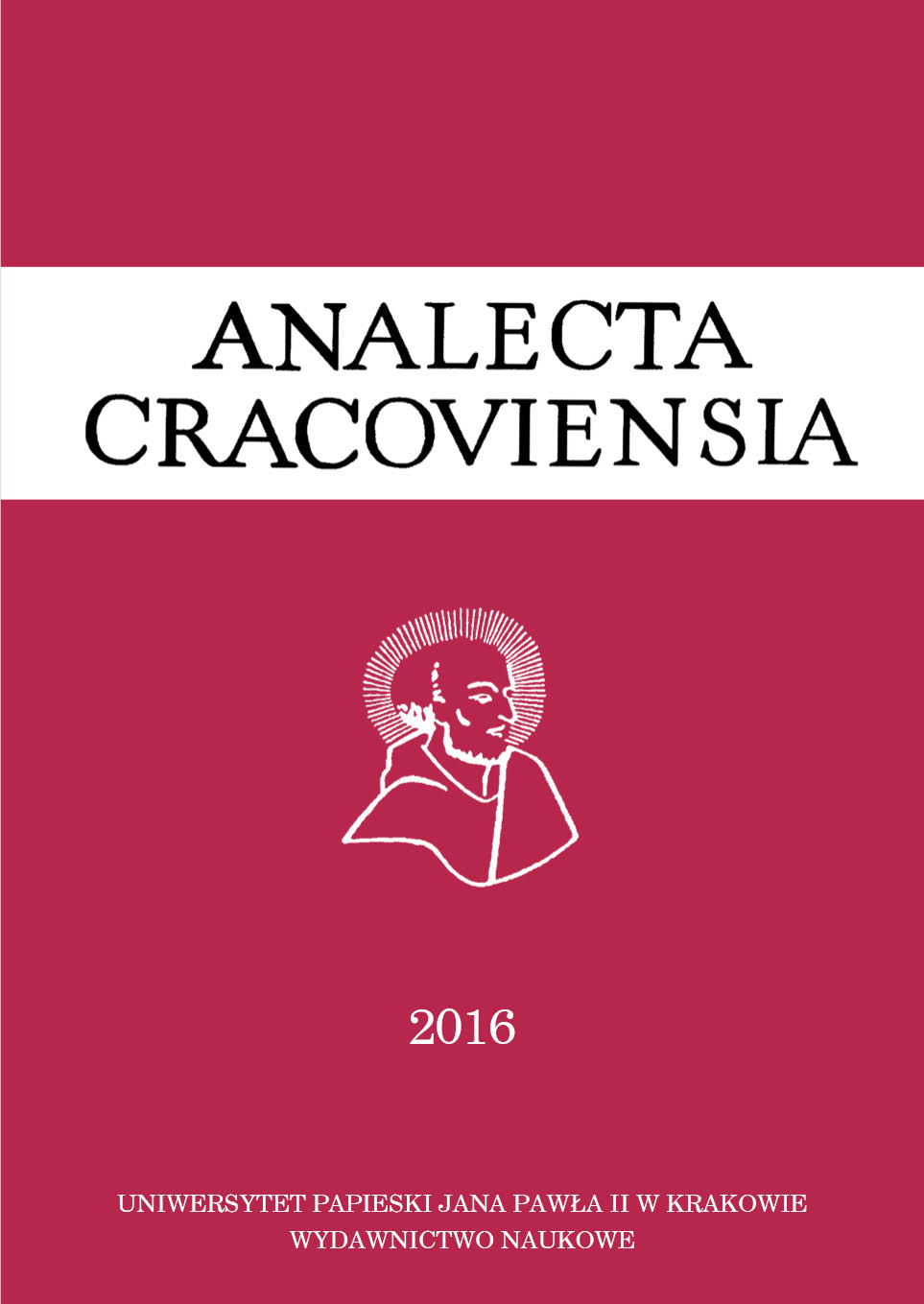Some remarks concerning distinction between “form” and “significancy” of religious expressions
DOI:
https://doi.org/10.15633/acr.1976Keywords:
religion, language, desacralisation, form, essenceAbstract
The purpouse of this paper is to examine basal assumptions lying at the bottomof intentional transformations of religious expression’s forms. According to examined
concept “forms” in which these ideas are transmited and taught, are historicaly conditioned,
variable and thus should be adjusted to mentality of conteporary culture. This
proposal rest upon assumtion that we are able to distinguish between relative “form”
of expresion and its objective “essence”/“menaning”. Consideration conducted in an
article prove that this assumtion lack of justification and such efforts to “modernise”
religious language leads do desacralisation.
References
Chisholm R. S., Teoria poznania, przeł. R. Ziemińska, Lublin 1994.
Coomaraswamy R. P., The destruction of Christian tradition, Bloomington 2006.
Ebeling F., The secret history of Hermes Trismegistus. Hermeticism form ancient
to modern times, New York 2007.
Feyerabend P. K., Jak być dobrym empirystą, przeł. K. Zamiara, Warszawa 1979.
Ficino M., Platonic theology, vol. 1, trad. M. J. B. Allen, J. Hankins, London 2001–2006.
Gilson E., Jedność doświadczenia filozoficznego, przeł. Z. Wrzeszcz, Warszawa 1968.
Justyn Męczennik, Apologia, [w:] M. Michalski, Antologia literatury patrystycznej,
t. 1, Warszawa 1975.
Krąpiec M. A., Język i świat realny, Lublin 1985.
Kuhn T., Struktura rewolucji naukowych, przeł. H. Ostromęcka, Warszawa 2009.
Pietras H., Eschatologia Kościoła pierwszych czterech wieków, Kraków 2007.
Quine W. V., Z punktu widzenia logiki, przeł. B. Stanosz, Warszawa 2004.
Tacjan Syryjczyk, Przemowa do Greków, [w:] M. Michalski, Antologia literatury
patrystycznej, t. 1, Warszawa 1975.
Tillich P., Utracony wymiar, przeł. J. Kłoczowski, „W Drodze” 1973, nr 2, s. 3–9.
Downloads
Published
Issue
Section
License
The author declares that he owns the copyright to the work (article) and that it is not limited in the scope covered by the above declaration and that the work (article) is an original work and does not infringe the copyright of other persons.
The author allows the Pontifical University of John Paul II in Krakow to use the paper free of charge, non-exclusive and unlimited in time by, i.e.:
– keeping in records and reproduction of the copies of the work using printing, reprography, magnetic recording and digital technology;
– trade in the original or copies on which the work has been recorded (introduction to the market, lending or rental of the original or copies, public exhibition, display, as well as making the work available to the public in such a way that everyone can have access to it in a place and at a time chosen by them);
– inclusion of the work in a collective work;
– granting by the Pontifical University of John Paul II in Krakow a Creative Commons Sub-licence Authorship Recognition-Non-commercial Use-No Subsidiaries 3.0 Poland
The Pontifical University of John Paul II in Krakow makes the work available on the Magazine Platform of the university under the Creative Commons Attribution-Non-commercial Use-No Subsidiary Works 3.0 Poland license.
Thus, it entitles all interested parties to use the work under the following conditions:
- the author and the title of the work will be given,
- the place of publication (journal title and internet address of the originally published work) will be indicated,
- the work will be distributed in a non-commercial manner,
- no dependent works will be created.

